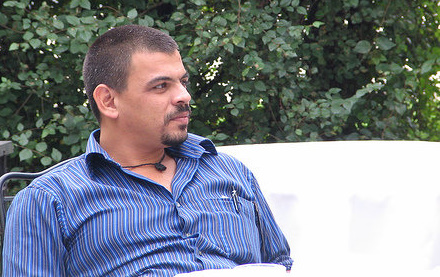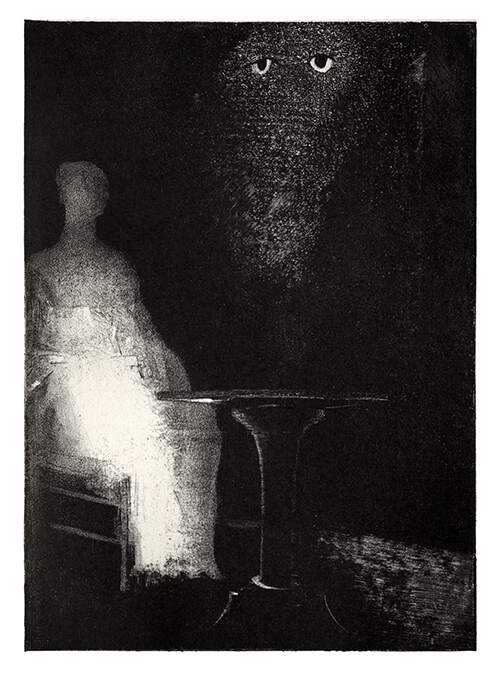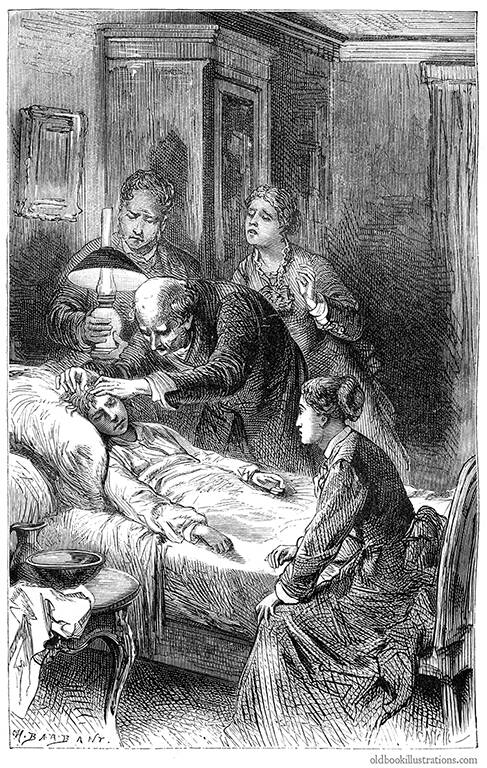 It was strange when I revisited this image on Facebook. Everyone seems to like it. I’m not sure exactly why it is popular, but it is.
It was strange when I revisited this image on Facebook. Everyone seems to like it. I’m not sure exactly why it is popular, but it is.
For me, now, I look back at this image and remember that day and what a confusing period of life it was, where I had simply decided to continue placing one foot in front of another for a while on paths that showed up if only so that I would keep moving.
It was taken at the first Mobile Active Convergence, in September of 2005. The links are all broken, the MobileActive.org site gone to the wayside with other internet detritus, the 1s and 0s being recycled to form other stuff that will later become detritus. It was a horrible event for me. Non stop. People who had more passion than ideas, I would reflect on later, as every little thing they were using mobile phones for was spun so positively yet I could see so many negative effects that would, later, rear their head through the use of the devices for bad things.
I did not fit in. It was a younger crowd – in the picture there, I’m just about to turn 34, and was taking a moment between assaults on my faculties by what I considered overly positive people with overly positive ideas that did not seem to account for the bad side of what their stuff could be used for. And I was becoming angry. Angrier, perhaps, because it was a constant barrage.
And then there was the backdrop. The BBC article on the Alert Retrieval Cache had come out that January, which should have been a good thing. Every time something happened around the world, I’d get contacted, and it was something that never get traction. The idea of text messages getting to the internet was so new that – get this – Twitter had not yet come into being (they showed up in March, 2006, over a year later after our work we were trying to give to NGOs for free). A quote from the article makes the point:
…But there’s still another challenge. You have to get people to know that the system is there for them to use.
“It’s amazing how difficult it is to find someone to pass it along to, and say, look this is what we’re trying to do and everything like that,” says Mr Rampersad. “So the big problem right now is the same problem we’re trying to solve – human communication.”…
I saw the MobileActive Convergence as a means to better make the idea visible for humanitarian reasons – a gift to the world, if you would, in my own naiveté. It was a year of naiveté, I would find later.
2005 Was A Crazy Year
I had spent most of 2005 living out of bags as I pinged about Latin America like a lost packet on the Internet, then editor of LinuxGazette.com which was at odds with LinuxGazette.org, Corporate Publishing vs. Community, and I found myself unwittingly smack dab in the middle of it, trying to broker peace between an angry community and an angry publisher so that we could move things forward. I was a believer at that point. I saw potential with everyone working together, but I had no idea of the animosity, even from one of the editor’s of SSC’s Linux Journal. You can read the sanitized version of how that Linux Gazette debacle ended on Wikipedia. It was not that clean, and at the time I had no idea of the USPTO stance as well.
So I worked myself out of a job, telling my boss Phil Hughes that the community was not interested in middle ground – given the temperaments of people on both sides of the fence, I can only imagine the history prior to me showing up thinking of rainbows and unicorns. It was an acid bath for me that lasted about a year.
 The travel was good, though. I had started in Panama City, Panama, with my Spanish the failure that had simply progressed from Secondary School. So I had to learn Spanish, and the way I learned was not too different than the way people learn English in such conditions – and the people in Latin America, I was to find, were very helpful in this regard once they realized you authentically were trying. And I was.
The travel was good, though. I had started in Panama City, Panama, with my Spanish the failure that had simply progressed from Secondary School. So I had to learn Spanish, and the way I learned was not too different than the way people learn English in such conditions – and the people in Latin America, I was to find, were very helpful in this regard once they realized you authentically were trying. And I was.
Humility is getting a haircut when you can’t communicate in the same language as the barber, or ordering a sandwich when there’s nothing to point at. Necessity might be accused of being the mother of invention, but I found it to be the mother of learning. And so when I closed the loop after my travels and ended up in Panama City again, to house sit for friends who were attending a graduation of a daughter in Malta, I met some of the same people and one said that after all the months my Spanish was improved, but that I spoke with a Brazilian accent. I’d say that was progress. We laughed. We drank. We ate pizza with salami. My Spanish got better.
My most amusing anecdote out of that trip was being in Estelli, Nicaragua, and despite being warned by my then boss, Phil Hughes, I managed to break the carafe for the coffee maker and left early to see if I could find one in downtown Estelli. I wandered through the open market, from shop to shop, looking for one, until finally, exasperated in (of course) a coffee shop, I asked them what the word for carafe in Spanish was. Carafe. I asked for one at the first place I stopped, laughing, and I bought it for $10 US and happily returned to the home of Phil Hughes who had no problem telling me he had warned me about the carafe.
I saw so much country, and I did not stay in the tourist places. I made friends wherever I went, people who helped me out, whose couches I slept on. We talked about Linux, sure, that was part of the job, but I was enriched by a truly South American perspective of the world from gente real. That was good.
After closing the loop in Panama City, Phil let me know that I was no longer needed since LinuxGazette.com would no longer be around. I don’t know if he did hire me originally because he wanted it solved – I think in retrospect he just wanted to say he tried, which is fine, because I gained much out of the experience – even the bad parts of trying to find middle ground with the folks from LinuxGazette.org. I think some of them knew that I had really tried, but man, there were some nasty folks in there too who I wish no kindness upon. In all of their nastiness, I never once responded in kind. I unapologetically do not wish those people well, for they were intent on simply beating a whipping boy while I was there sincerely to try to get things to work. I do not wish them poorly. I simply do not wish them well.
And so, untethered, I found myself in Panama City with no real prospects for about a month, when suddenly I was being requested in Guyana to network St. Joseph Mercy Hospital since IBM wanted an unconscionable amount to do it. And so I went there to find out that the head IT person there at the time was completely against connecting the hospital because of nothing more than hubris. In the middle of dealing with that nonsense, my father passed away – August 5th, 2005, so I flew to Trinidad, cremated him, got angry with family who – within less than 24 hours- had emptied the house and picked all the avocadoes without waiting for me… but was patient. I even endured the Hindu rites and did them properly just to keep the peace, when peace was the furthest from my mind.
Then to Guyana again to network the hospital – we ran the cables for, literally, pizza, but these would later not be used because of their IT head who felt that the project had been ‘stolen’ from her.
Then along came MobileActive Convergence, and I thought, “I could really use a win now.”
 In this picture, oddly enough, I had begun accepting that there was no win for me there. That the world didn’t want things to be better, that people were petty and uninterested in the common good – they were interested in their own ideas gaining relevance even if they had not themselves been circumspect, and they were not open to constructive criticism to make their ideas better or, worse, to demonstrate the ideas were not good.
In this picture, oddly enough, I had begun accepting that there was no win for me there. That the world didn’t want things to be better, that people were petty and uninterested in the common good – they were interested in their own ideas gaining relevance even if they had not themselves been circumspect, and they were not open to constructive criticism to make their ideas better or, worse, to demonstrate the ideas were not good.
This is a picture of naiveté defeated, crushed into the dirt even before people abused even my name to make their projects look to be of worth. This is the picture of me realizing that the crabs in the barrel do not want to make the barrel a nicer place. They want to escape the tragedy of the world they see and will ignore reality to make that happen. This is me beginning to make peace with that before I turned 34, the beginning of a slow turn to who I am now.
The world did not beat me. I did not join it. I wasn’t myself crushed beneath the wheel, but I was changed and this picture, to me, shows the peace of that turning point.
I knew that guy. It’s a bit tragic he’s gone.
 A day or so ago, someone commented on my post about my first surgery on this slab of meat that I inhabit. And they said, “One might call you generally unremarkable.” Taken out of context, that’s a bit of a slap. Taken in context, as it was done, was also a bit of a slap filled with assumption, but I gauged the intent otherwise and decided to interpret it as, “One might call your health generally unremarkable.”
A day or so ago, someone commented on my post about my first surgery on this slab of meat that I inhabit. And they said, “One might call you generally unremarkable.” Taken out of context, that’s a bit of a slap. Taken in context, as it was done, was also a bit of a slap filled with assumption, but I gauged the intent otherwise and decided to interpret it as, “One might call your health generally unremarkable.” It was planned, this surgery, and while the particulars aren’t important, I found the process worth writing about. After all, people poking about in one’s body has become remarkably commonplace in the last century.
It was planned, this surgery, and while the particulars aren’t important, I found the process worth writing about. After all, people poking about in one’s body has become remarkably commonplace in the last century. It was strange when I revisited this image on Facebook. Everyone seems to like it. I’m not sure exactly why it is popular, but it is.
It was strange when I revisited this image on Facebook. Everyone seems to like it. I’m not sure exactly why it is popular, but it is. The travel was good, though. I had started in Panama City, Panama, with my Spanish the failure that had simply progressed from Secondary School. So I had to learn Spanish, and the way I learned was not too different than the way people learn English in such conditions – and the people in Latin America, I was to find, were very helpful in this regard once they realized you authentically were trying. And I was.
The travel was good, though. I had started in Panama City, Panama, with my Spanish the failure that had simply progressed from Secondary School. So I had to learn Spanish, and the way I learned was not too different than the way people learn English in such conditions – and the people in Latin America, I was to find, were very helpful in this regard once they realized you authentically were trying. And I was.